New 'Ice Bucket Challenge' Sweeps Olympic Year, Honor Makes Technology Warm
![]() 08/21 2024
08/21 2024
![]() 500
500
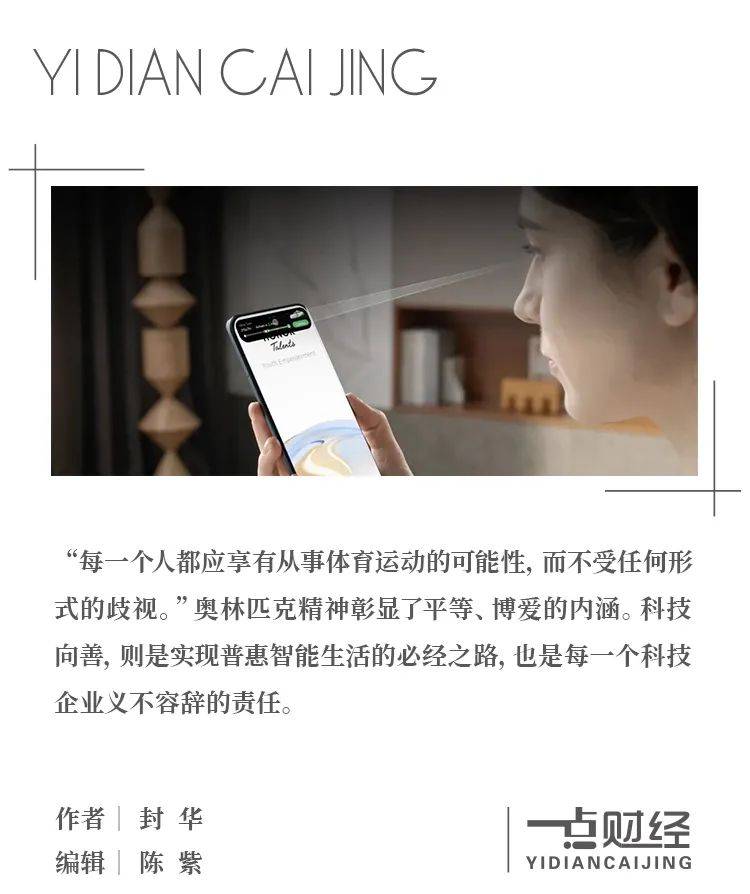
After the Paris Olympics ended, the Paralympics will officially kick off on August 28, and the fighting spirit of "surpassing oneself and challenging limits" continues.
The spirit of challenge exists everywhere, both on and off the field.
2024 is not only the Olympic year but also the 10th anniversary of the 'Ice Bucket Challenge,' reigniting discussions about Amyotrophic Lateral Sclerosis (ALS) patients. These special challengers outside the sports arena, when facing life's difficulties, also demonstrate the tenacious Olympic spirit.
BBC reported on Dutch entrepreneur and artist Bernard Muller's fight against ALS as an 'Honor Challenger.' Following the BBC's lead, several top global media outlets launched extensive coverage under the theme '#HONOR the Challenger.'
Simultaneously, BBC partnered with public welfare organizations to launch the '#HONOR the Challenger UGC Challenge' overseas, attracting widespread participation worldwide. Domestic media and Paralympians also actively participated.
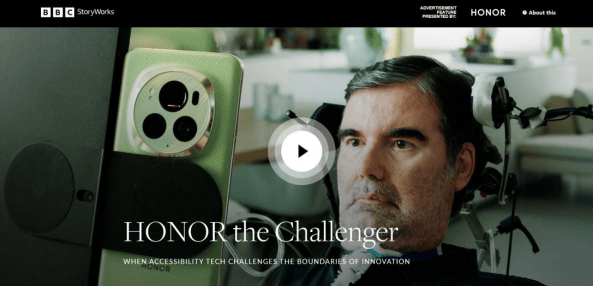
The event organizer stated: "This event aims to inspire those who are unaffected by their environment, dare to achieve extraordinary accomplishments, and actively embrace passionate lives."
As the event unfolds, how technology can empower individuals, including those with disabilities, has become a focal point of attention.
"This is an excellent way to raise awareness about ALS and inspire individual resilience and determination, regardless of whether they are athletes or members of special populations," praised French media outlet Konbini, believing it brings a glimmer of hope to special populations.
Using technology for good is the inevitable path to creating inclusive smart lives and the unshirkable responsibility of every tech company.
Behind the heat of this event lies the humanistic care embodied in technological power. It is the rapid advancements in technologies like AI that enable special populations like ALS patients to enjoy technological lives and express themselves smoothly.
01
Paying Tribute to Challenges and Transmitting Care
When mentioning the Ice Bucket Challenge, everyone must have a deep impression. This online challenge, launched in the summer of 2014, swept the world and triggered a relay among countless celebrities.
The current '#HONOR the Challenger UGC Challenge' shares similarities—both embody the spirit of challenge and humanistic care for the special population of ALS patients.
ALS, medically known as Amyotrophic Lateral Sclerosis, damages motor neurons, gradually freezing patients' abilities to speak, move, and even breathe and swallow.
Therefore, attentive care and timely response are crucial for ALS patients. The challenge is not only a tribute to this group but also a call for society's care and assistance through the power of the topic.
Participants must strike a sports pose and hold it for 5 seconds, tag their videos with '#HONOR the Challenger,' and invite more people to participate.
Well-known athletes like Nile Wilson, an Olympic gymnastics medalist from Europe, and Ash Waston, a world record holder, actively supported the challenge by sharing their stories and urging more people to participate via tagging their friends.
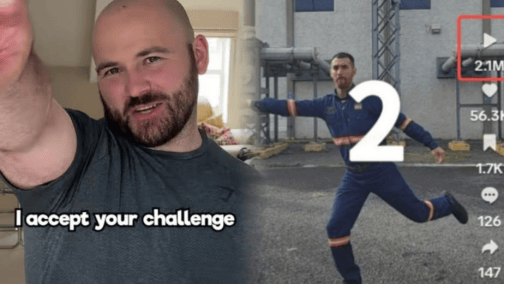
Domestic Paralympians also actively participated, forwarding the challenge and hashtags on Douyin and Weibo to pay tribute to ALS patients.
"I can't imagine the daily challenges faced by ALS patients, and their positive spirit inspires us all," said Xue Juan, a two-time Paralympic women's TT3 singles and team champion, who voiced her support for the '#HONOR the Challenger Challenge' on Douyin, hoping to inspire more people with the spirit of challenge.
Wang Meng, a Chinese wheelchair curler and the first gold medalist for the Chinese team at the PyeongChang Winter Paralympics, also participated in the relay on Douyin. Sitting in her wheelchair, she pushed the curling stone and remained still before giving a thumbs-up and shouting, "Challenger's Glory!" conveying an unwavering and optimistic spirit.
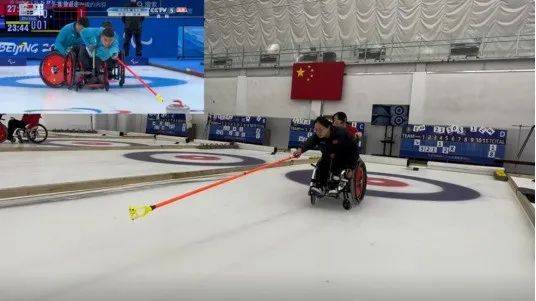
Within a week of its overseas launch, the '#HONOR the Challenger UGC' activity attracted over 6,000 participants worldwide, including well-known overseas athletes and celebrities, with cumulative views exceeding 100 million. On TikTok alone, as of August 12, relevant content had been viewed over 70 million times by 5,400 participants, generating nearly 2 million interactions.
At this moment, the world stands united with special populations to face life's challenges. Through social media and celebrity influence, the ALS patient community, these challengers, receive global care and support.
02
AI Assistance and Inclusive Technology
As technology soars, it's crucial to slow down and focus on those overlooked corners of resilience and challenge.
Providing technical support to special populations is a worthwhile humanistic challenge and a catalyst for accessible technology progress.
ALS patients gradually lose muscle function, with each loss being permanent. In later stages, they rely solely on their eyes and brains. Current technological support targets these abilities.
Behind this support stands Chinese tech company Honor, with two primary technology routes supporting ALS patients: eye-tracking and non-invasive Brain-Computer Interface (BCI) technologies.
On August 27, Honor will introduce eye-tracking technology based on intent recognition through its MagicOS 8.0 operating system globally. This technology revolutionizes smartphone interaction, enabling users to interact solely with their eyes, opening notifications, apps, and communicating with the outside world through AI.
Moreover, Honor is the first smartphone brand to introduce eye-tracking technology based on intent recognition, ushering in an era of "see and operate."
"Honor's platform-level AI capabilities pave the way for more intuitive and immersive experiences, revolutionizing how we interact with digital devices and applications," noted BBC, recognizing Honor's multi-modal AI technology as disruptive.
Bernard Muller, the Dutch entrepreneur and artist featured in the BBC report, began battling ALS at 41. Now, unable to speak, he relies on Honor's eye-tracking technology for video calls with his family and creates paintings.
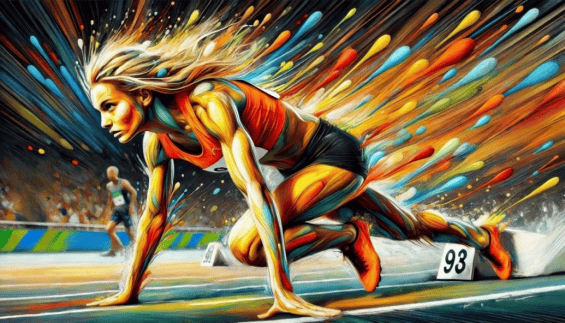
△ Paintings created by Bernard Muller using Honor's eye-tracking technology
"AI has become my brush," said Muller. "My inspiration comes from those pursuing dreams, regardless of challenges. This moment is serene."
Beyond eye-tracking, Honor continues to research brain signal-controlled smart devices.
Zhang Wei, a 34-year-old from Shandong, has lived with ALS for 26 years, losing the ability to stand or walk. Despite his condition, he climbed Mount Tai and Hua. Recently, he experienced Honor's non-invasive BCI technology, allowing him to control computer software through brain signals, supporting his pursuit of dreams.
"I'd rather die pursuing my dreams than on a hospital bed," said Zhang Wei. Active minds limited by declining physical functions struggle to express themselves. AI-powered multi-modal technologies open new possibilities, bringing convenience to those like Zhang Wei.
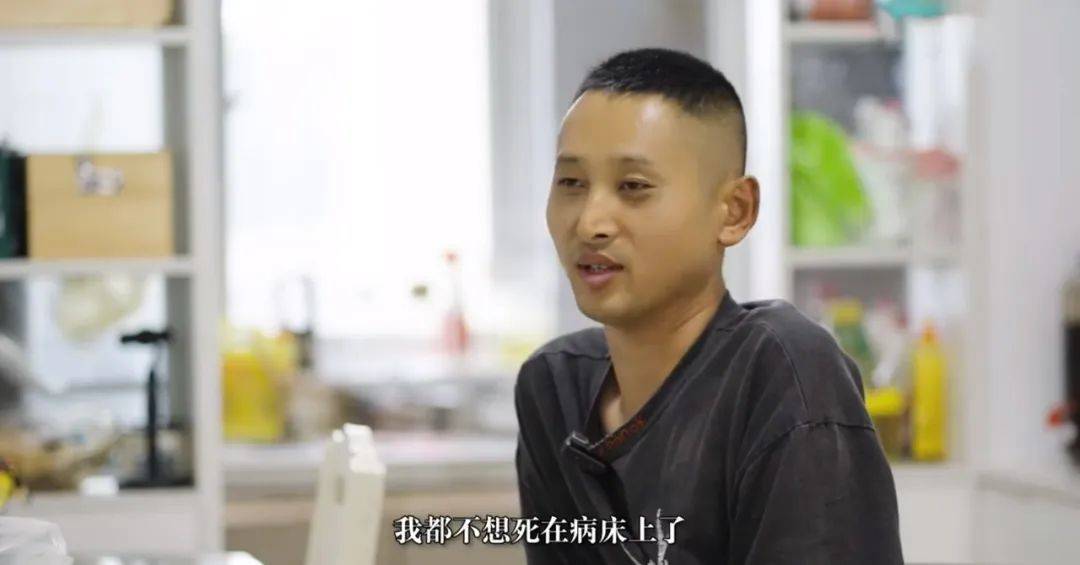
"Empowering the masses with AI-enabled hardware is the unshirkable mission of terminal manufacturers," said Honor CEO Zhao Ming. "Honor will better empower consumers in the AI era, making individuals stronger."
Honor's robust AI capabilities lay a solid foundation for realizing the vision of inclusive technology. The realization of these technology routes relies on AI-supported 'intent recognition,' enabling smoother human-computer interaction for the disabled.
AI technology may become a beacon of hope for special populations. Honor aims to reconstruct smart terminal operating systems through AI, improving daily user experiences and enabling more special populations to enjoy technological lives.
Many tech companies engage in technology-assisted disability activities. Unlike direct donations, Honor focuses on product adjustments and optimizations for the disabled, integrating accessible technology with mainstream products for sustainable development.
This exemplifies how technological progress benefits disadvantaged groups, fulfilling Honor's vision of "creating a smart new world for everyone."
03
Human-Centered and Tech for Good
A clear thread runs through Honor's AI technology development and accessible project advancements—a human-centered approach.
If corporate value is divided into three dimensions—user value, economic value, and social value—most tech companies prioritize the first two, closer to profit. The attention paid to social value reflects a company's commitment to human-centeredness.
Honor views ESG (Environmental, Social, and Governance) as a long-term strategy, focusing on green environmental protection, tech for good, privacy security, youth empowerment, supplier CSR, employee development, and responsible governance. Tech for good significantly aids special populations, generating immense social value.
Over the past decade, Honor has consistently pushed accessible projects, developing features like screen readers, color correction, call subtitles, AI subtitles, aging suitability, and remote guardian.
Specifically, for visually and hearing-impaired individuals and seniors, AI solutions like screen readers and AI subtitles facilitate information access, enhancing user experiences. Honor's AI subtitle feature supports offline use, allowing audio to be "seen," solving a major pain point for the hearing impaired.
According to Honor's 2023 ESG report, tech for good has made significant progress. By year-end 2023, Honor's visual impairment accessibility features benefited over 4.66 million users; nearly 140,000 users benefited from call subtitles monthly; and nearly 800,000 from AI subtitles. Honor also established an eye protection lab, investing over RMB 1 billion in R&D over three years to advance display innovations.
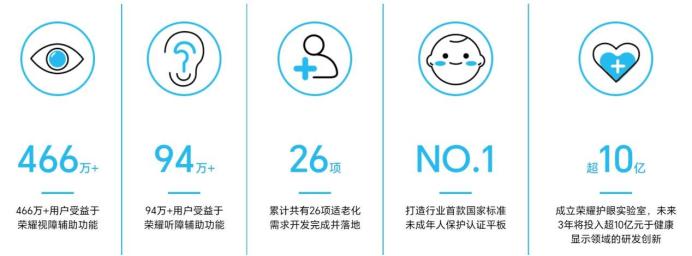
△ Source: Honor 2023 ESG Report
Honor's development of accessible features stems from robust R&D capabilities, innovation, and a unique trait—tech empathy.
Only companies genuinely valuing social responsibility can comprehend and meet special populations' needs, achieving ESG goals.
Since 2023, Honor has held nearly 10 offline user exchanges, interacting with over 700 individuals with disabilities, gathering firsthand experience for designing inclusive products. Honor has deployed strategies across organizational structure, user insights, product design, and R&D support, ensuring products cater to special populations' needs.
Honor's empathetic user insights and product design system have crafted disruptive interaction experiences, fostering a soulful connection with special populations.
Supporting accessible projects with technological might is a worthwhile endeavor. Tech companies play a pivotal role, assuming social responsibilities and fostering a virtuous cycle of inclusive tech business for sustainable development.
04
Conclusion
Over the years, the Olympic spirit of 'higher, faster, stronger' has evolved into a deeper, broader concept.
The Olympic Charter's inscription, "Everyone should have the possibility of practicing sport, without discrimination of any kind, and in the Olympic spirit, which requires mutual understanding with a spirit of friendship, solidarity, and fair play," embodies equality and philanthropy.
Indeed, the resilient, self-surpassing spirit should reside in everyone. Special populations, physically limited, struggle to express themselves, requiring global attention and support.
Technology is crucial for inclusive sports, enabling all populations to equally enjoy the benefits of smart tech advancements.
With a little more attention and support from everyone, these micro-lights will converge into the glory of our time.







